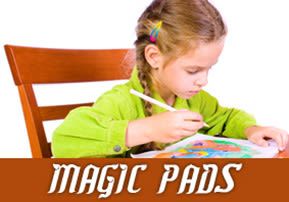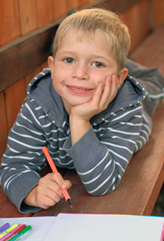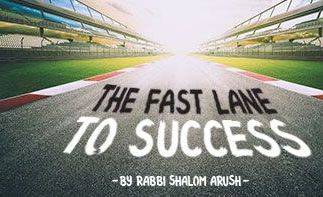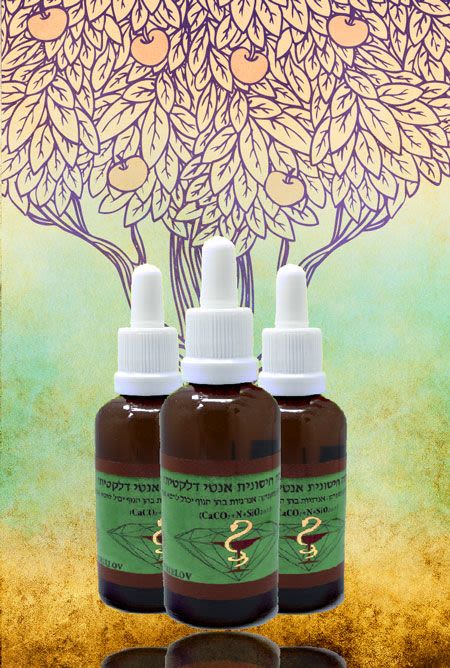
Magic Pads
The younger the child is, the deeper and more lasting are the formative messages to his brain. This is because our minds start out as blank slates...

Everything that happens to us in life is somehow recorded in our brains. Whatever it is that we learn and experience, whether it was nice and sweet or really not so nice, makes an impression on our minds.
When I was a kid, we used to play with something called “Magic Pads.” These were pads made of wax that had an overlay of plastic on top of them. We would write or draw something on top of the clear plastic and it would make an impression on the wax pad below it. You could then see whatever you created through the plastic. If you lifted the plastic overlay it would erase the picture above but if you looked carefully you could still see the lines that you made were embedded into the waxy pad below. Beneath the surface, there was a residual impression of whatever you drew.
The experiences that we have, particularly when we are very young make similar impressions on the blank tablets of our minds. The experiences that a young child has with his or her mother, for example, lay down neural pathways in the child’s brain that are etched in very deeply. The younger the child is, the deeper and  more lasting are those formative messages to his brain. This is because our minds start out as blank slates. By the age of three, a child’s brain is practically the size of an adult brain, but very little has been written into it yet.
more lasting are those formative messages to his brain. This is because our minds start out as blank slates. By the age of three, a child’s brain is practically the size of an adult brain, but very little has been written into it yet.
Our earliest experiences more strongly determine our future way of thinking, perceiving and interacting with people than do our later experiences. Especially significant are the interactions between a mother and her infant. This is why I like to speak to young couples and mothers-to-be and give them this priceless information.
There is a fascinating teaching from the Oral Torah that was passed down for many generations before it was eventually written down. The lesson can be found in a book called The Ethics of the Fathers in the 4th chapter, lesson number 25. There it says: “…One who studies Torah when he is still a child, to what can he be likened? To ink written on a fresh clean paper. And one who studies Torah as an old man, what can he be likened to? To ink written on smudged paper.”
Now let’s realize that although the Torah here is ostensibly speaking about academic learning that what it says about academic learning also applies to what psychologists call emotional learning. Emotional IQ refers to a person’s ability to manage his emotions and his human relations. Unfortunately, there are loads of people with genius level intellectual IQ’s, whose emotional IQ’s are quite impaired and in the inferior range. Many of these frightened, angry, irascible genius’ may not have had the best stuff etched into their brains when they were very young. Which type of IQ would you say is more important, intellectual IQ or emotional IQ? According to Rebbe Nachman of Breslev, emotional IQ is far predictive of a person’s overall happiness than intellectual IQ can ever be.
We must keep in mind that although a baby doesn’t possess a very rational mind, he can still sense the difference between a parent who is holding him or feeding him with loving care and one who is handling him in a cold, mechanical and perfunctory way. Infant researchers tells us that babies respond very differently to the sounds of caretaker’s voices and whether they are smiled at and sung to etc. Of course babies aren’t very good at differentiating and accurately interpreting their parent’s true intentions, so if mom is in an angry, impatient or depressed mood, the baby can misinterpret that for rejection and abandonment, G-d forbid.
Have you ever had the experience of misreading someone else’s behavior towards you and feeling insulted by their short and abrupt manner? Only later, you may have realized that the other person was just having a rough day and their abruptness wasn’t meant for you. Well if we adults sometimes fail in our ability to “reality-test,” you can imagine how easy it is for a child, especially an infant to completely misread our true intentions.
People who come for counseling later in life who have not had enough love, understanding and encouragement engraved into their minds, but rather have suffered heavy doses of hatred, violence, exploitation and abuse are very difficult people to help. You can just imagine how smudged up their once holy and pristine minds have become. People like this not only need tons of love, understanding and patience from their counselors, they need it from where ever they can get it in the right way. Just imagine how much light must shine into a mind where so much darkness has already seeped in. From a secular point of view the picture of what can be done for such people looks rather pessimistic and bleak.
Fortunately though, we don’t have to limit ourselves to a secular view. We have a more positive and optimistic outlook for everybody because we are looking beyond natural law to something much higher than that. Let’s , once again, turn to the Torah itself for something that we can use to encourage such a person. There is a very positive way of learning the above lesson that I quoted about the effects of writing on clean as opposed to smudged paper.
There is a famous commentator on the Torah whose writings are known as the Chidushey HaRim and he has a profoundly optimistic way of understanding this lesson. He says that it doesn’t really matter if a person comes to learn something new later in life, he can also learn it superbly.
How?
Simply, by being shown how to approach the new learning with the fresh exhilaration, enthusiasm, excitement, and wonder of youth; then, he will have help from Heaven and G-d will enable him to learn like someone who is many years younger than himself and whose mental canvas is much more fresh and clean.
Likewise if a person’s emotional learning was clouded up and he has severe challenges in knowing how to manage his emotions and his relationships with others, we teach him how to be less “adult” and less serious; we model for him how to act with more faith and more of the spontaneity and playfulness of youth; and he too will grow and succeed and reach his true purpose.












Tell us what you think!
Thank you for your comment!
It will be published after approval by the Editor.